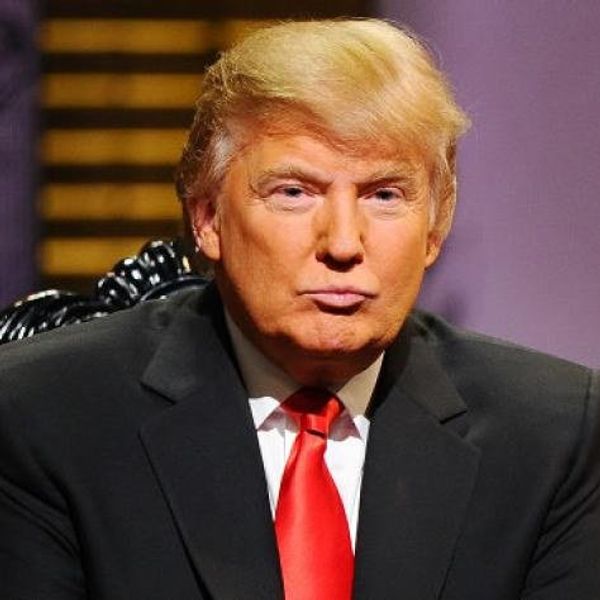Like many of my peers, I have been endlessly and perversely entertained by the antics of Donald Trump this election season. Donny Small-Hands has always had a ridiculous public persona, but recently he has swung for the fences in not only offending people, but also bringing hate speech onto the world stage. Because he is such a strange enigma, everyone's been looking for an analogue to explain Trump and his rise in terms we can wrap our head around.
So far, the classic move has been a comparison to Adolf Hitler. While that is apt at times, Hitler also holds a unique status as the worst individual in our shared consciousness. To say, "Trump Is Hitler" is to say, "Trump is a monster I cannot ever understand", and end the thought process there.
Personally, I think we need to view Trump through the lens of a less stigmatized character in order to understand how he got to be the GOP frontrunner. That someone is, of course, Prince Hal from Shakespeare's King Henry IV Part I.
For those of who haven't read or seen this play (which is understandable; Henry V is a lot sexier), the basic plot is pretty simple: there's a storm of rebellion brewing in England against the King, and revolution seems like it will break out any minute. Meanwhile, the King's strange son, Prince Hal, spends his time hanging with the cleverest barflys you'll ever meet, shirking his duties in the name of good times. To put it simply, he's not someone you'd want at your family picnic, let alone the guy who should be next in line to the throne.
At first, the prince's rash actions seem to be just juvenile rebellion, Hal's way of pissing off his dad. But in the second scene of the first act, Shakespeare reveals that there's something more sinister lurking underneath the surface. Here's a link to the text if you'd like to read it, but John Gielgud plays the character best in Orson Welles' Chimes At Midnight:
Because Chimes is Welles' conglomeration of Henry IV Part I and Part II, we actually see a lot of Prince Hal palling around with Falstaff, played by Welles himself. It's all fun and games because, well, why not? But if you skip to 4 and a half minutes in, you get to see a dull sociopathic glint in the eyes of the future king. This man has been working hard to "make offence a skill", but it's all been because he wants to look better in comparison "when this loose behavior I throw off."
"Hal rightly recognizes the value of being seen as fresh and new", writes Jennifer Drouin, and I'm inclined to think Trump saw that same value last week when he chose to change his campaign strategy. "I will be so presidential," Trump said on NBC's Today Show, "you will be so bored." In another interview with the Wall Street Journal, he noted that he will be "more effective and more disciplined" in the future.
Trump knows that, if his campaign continues the way it has, he may win the GOP nomination but never the bipartisan vote (to our credit, 65% of Americans surveyed still view him as unfavorable.) I predict that these recent statements are Trump's way of beginning the turn to moderate that we've all seen coming for months.
What Trump may not have accounted for is, the stakes are a lot higher for him than they were for Prince Hal.
By constantly saying "what we all want to say", Trump has not only become popular, but made hate socially acceptable. "Make America Great Again" is not just a radical statement anymore; it's a figurehead for racists, misogynists, and bigots of all denominations to rally around and make that which is not Great into the Other. Even if the man does swing back and "imitate the sun" on a personal and political level, the effects of his early campaign will never fade away.
Like many of his business decisions, it appears Trump has gambled big and lost. And we're the one's who will be paying for it.





















